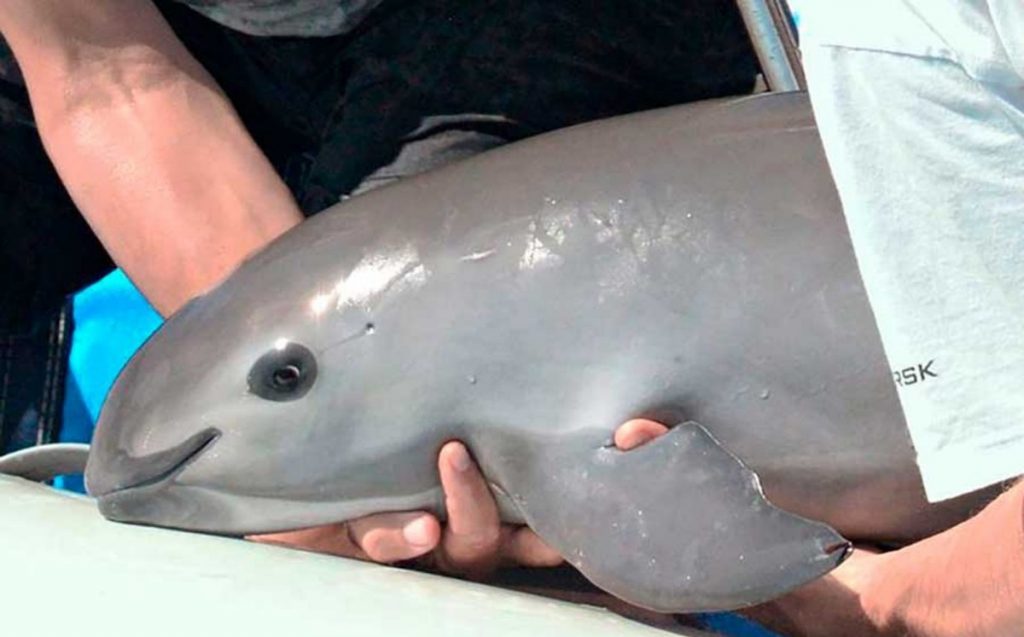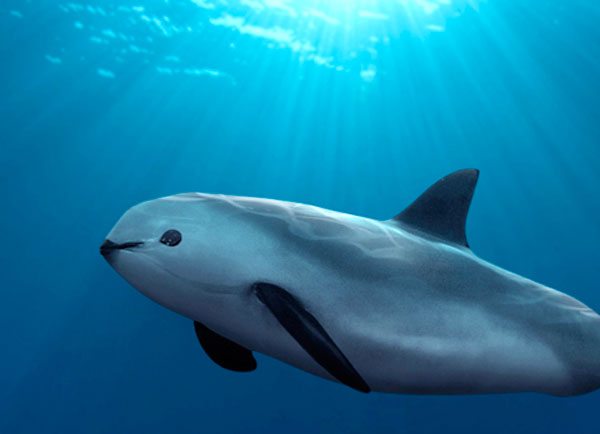MEXICO CITY.- Mexico’s Environment and Natural Resources Secretariat pledged Thursday to do more to protect the vaquita, a critically endangered porpoise, in order to avoid trade sanctions under the CITES environmental convention.
SEMARNAT announced that it will take seven steps, including controlling illegal gillnets that can trap and kill the vaquita, the world’s most endangered marine mammal.
But experts have their doubts: they say that Mexico has made almost the same promises in the past and has not kept them, and has even gone back on some of them.
It is estimated that approximately eight specimens survive in the Gulf of California, also known as the Sea of Cortés, the only place where they live. The species cannot be captured, kept or reproduced in captivity.
At the end of March, the CITES – Convention on International Trade in Endangered Species of Wild Fauna and Flora – called on the 184 countries that make up the Convention to stop trading Mexican products linked to species in delicate situations, such as orchids, cacti, and crocodile and snake skins, as a sanction because fishing continues in the vaquita’s protection zone in the upper Gulf of California.
The agency said on Thursday, that these sanctions were suspended after reaching an agreement with Mexico.
CITES regulates the trade and protection of endangered species. Trade in some protected species is permitted, such as that of farmed crocodiles for the use of their skins in shoes or handbags, but this activity is closely regulated.
Alejandro Olivera, Mexico’s representative for the Center for Biological Diversity, was skeptical of the government’s announcement.
“The Mexican government has been promising that since the first plan was published in September 2020. I don’t know what the difference is going to be now,” he commented.

Mexico has not acted fast enough to stop the use of illicit gillnets used in fishing for totoaba, a fish whose swim bladder is considered a delicacy in China. The nets used in this type of fishing also trap and drown the vaquitas.
The Mexican government promised CITES that it would monitor the authorized arrival and departure zones of fishing vessels to ensure that they do not invade the relatively small “exclusion zone” where the last vaquita were detected.
Dozens of vessels continue to be seen fishing in the area despite the existence of the Mexican Navy’s program to place concrete blocks with hooks in the area to capture illegal nets.
Olivera noted that authorities promised to use a GPS satellite monitoring system to track where the boats are going, but said the Mexican government stopped paying for the service some time ago.
Experts have also said that the government generally does not deploy law enforcement and regulatory agencies to docks and departure points and that many fishermen are heading out to sea illegally from the beaches.
Mexico’s plan says that a top priority is the implementation of alternative fishing techniques to the use of gillnets, but experts point out that in the past the government has promised to do this and never paid to do it. As a result, they point out, private groups are struggling to source alternative fishing gear that does not trap and drown vaquita.
“Shrimp fishing with prohibited nets continues to occur, and key points for landing the boats remain uninspected,” stated Olivera. “So far, everything is on paper. For the time being, the vaquita is on the verge of extinction. Therefore, all these measures should be implemented now, urgently.”
The government’s protection efforts have been spotty at best, and often face violent opposition from local fishermen.
The government of President Andrés Manuel López Obrador has largely refused to invest in compensating fishermen to stay out of the vaquita’s protected zone and stop using gillnets.
The activist group Sea Shepherd, which has joined the Mexican Navy in patrols to deter fishermen and help destroy gillnets, claims that these efforts have reduced gillnet fishing. But with so few vaquita remaining, that may not be enough.
San Miguel Times
Newsroom

